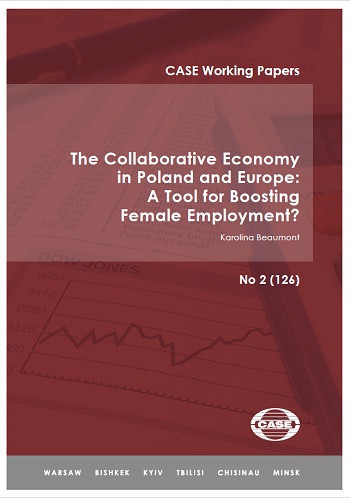NEW PUBLICATION: “The Collaborative Economy in Poland and Europe: A Tool for Boosting Female Employment?”
The collaborative economy is a relatively new economic approach based on peer-to-peer transactions. It includes the shared creation, production and consumption of goods and services accessible for all through online platforms and smartphone applications. It is a burgeoning business model that is experiencing increased interest in all European countries.
Statistics show that Poland already has an above-average number of women who are interested in self-employment. Furthermore, formal female employment in Poland is quite low by European standards. This situation implies great potential for the development of the participation of women in the collaborative economy.
CASE publishes a new paper “The Collaborative Economy in Poland and Europe: A Tool for Boosting Female Employment?”. Karolina Beaumont discusses the challenges of the collaborative economy as a system stimulating female social and economic empowerment and assesses the opportunities offered by the collaborative economy in increasing the female labour participation rate amongst Polish women.
According to the author, the collaborative economy represents “a particular potential for women, which are the most likely to endure not only more difficulties than men to access to entrepreneurship, but also to endure unemployment and struggles in experiencing satisfying work/life balance. Indeed, women are able to develop in the collaborative economy, unlike the other areas of the economy where they are still underrepresented, such as managing boards, CEOs, politics, or the labour market.”
Read the publication here.

